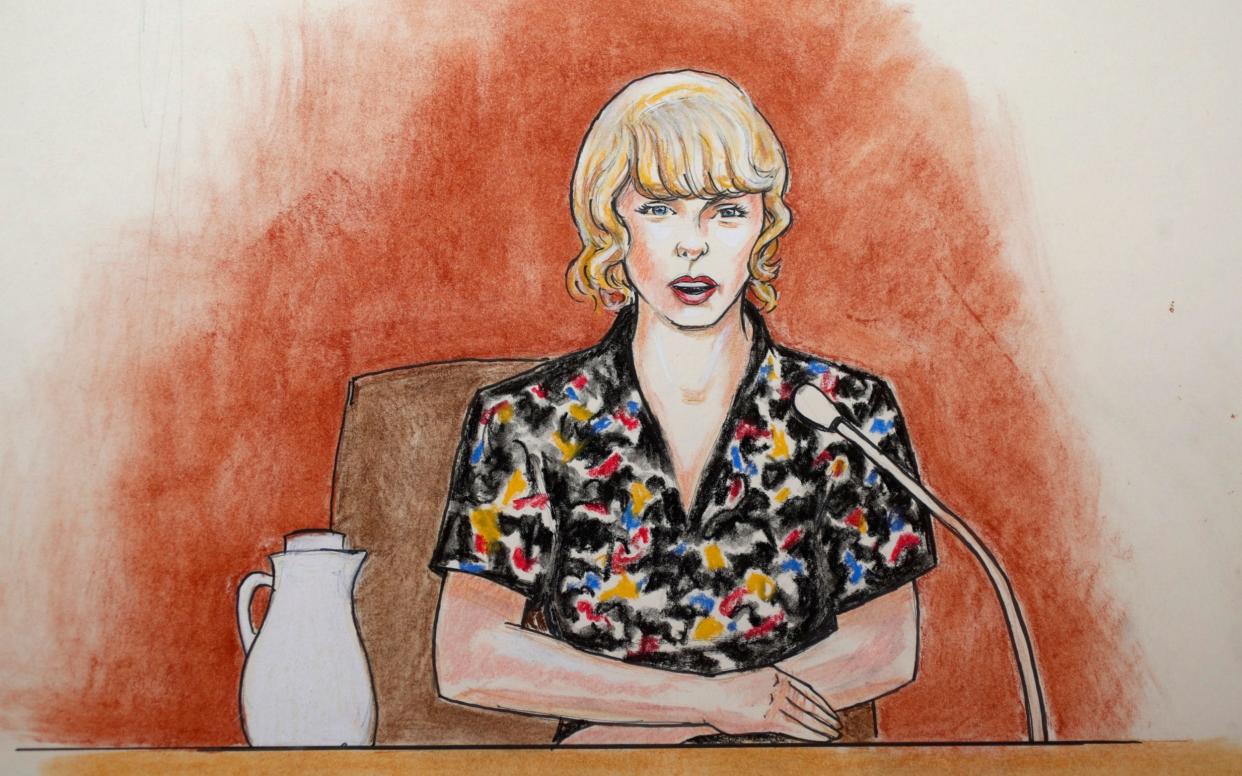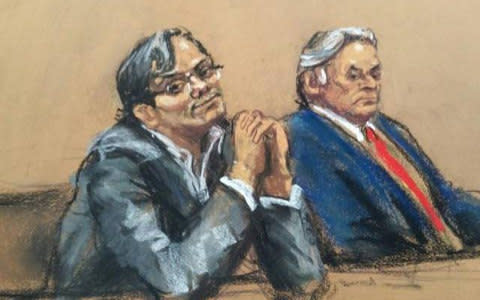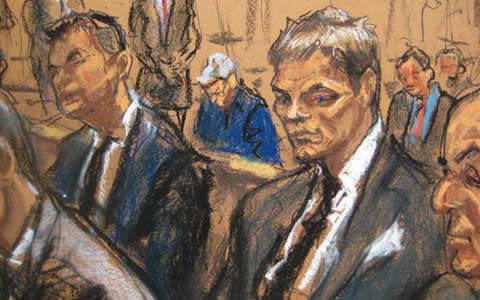Taylor Swift's courtroom sketch artist says he struggled to draw her because she was too pretty

The courtroom sketch artist who was mocked on social media for his drawings of Taylor Swift during her trial has defended his work, saying she was difficult to draw because she was too pretty.
Jeff Kandyba, from Boulder, Colorado, spent the trial sketching the 27-year-old, who on Monday night won her case against David Mueller. She accused him of grabbing her bottom while she posed for a photo in Denver in 2013, and won a symbolic $1 in a case she said was taken on behalf of women across the nation.
“A person like Taylor Swift, who is very pretty - has perfectly proportioned dimensions on the face - is actually much harder to sketch,” said Kandyba.

He told Fox News 21 in Denver that he did a lot of practice sketches before the start of the trial, because he was nervous about drawing such a high-profile figure.
“I’m always drawing people in my head and they always look way better in my head than they do on paper,” he said.
“It’s hard. Some people are just much easier to draw than others.”
Swift is not the only famous face whose courtroom sketch has drawn derision.
Martin Shkreli, the pharmaceutical entrepreneur described as “the most hated man in America”, would probably not be putting the sketches from his court appearance earlier this month on his wall.

And Tom Brady, the American football player, was likely somewhat taken aback by his depiction during the “deflategate” case, in August 2015.

The task of courtroom artist is even harder in the UK, as most courtrooms ban cameras - and artists are prohibited from sketching people in court as part of the 1925 criminal justice act.
The artists have to make notes during the hearings - and then draw their impressions from memory.

